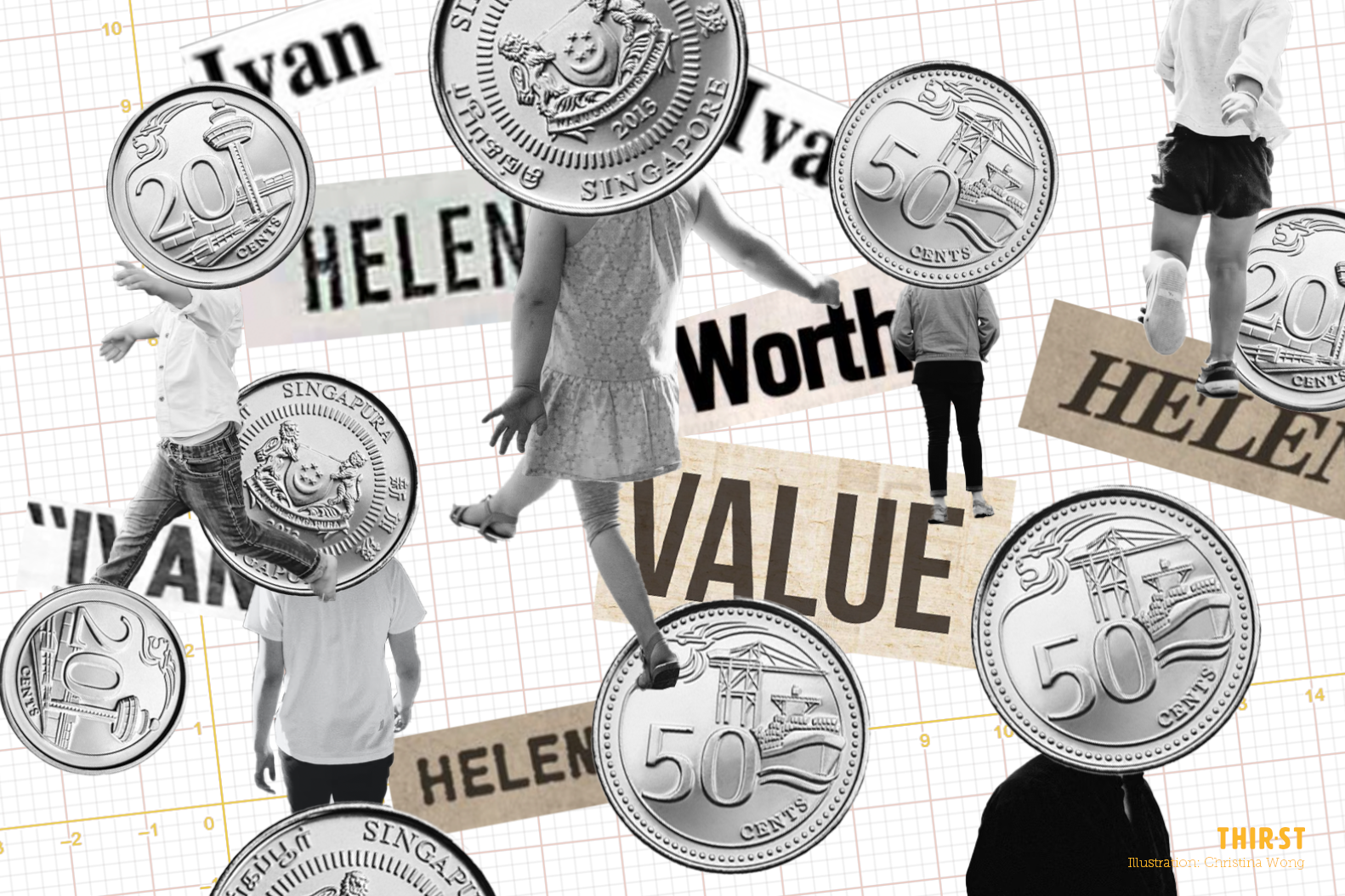Teach them how much they value first.
I graduated from my PSLE year exactly two decades ago in 2001.
Although it wasn’t on the scale of any pandemic, I had gone through an upheaval of my own kind, with my family moving to Hong Kong and me leaving behind everything I’d known in Singapore (including the boy I loved) soon after my last paper ended to start school there almost immediately.
Given the level of transition I was facing, having already spent the year taking entrance tests in various international schools during holidays, in between actually studying for the PSLE, I don’t remember anything about the exam I eventually took.
Neither have I paid attention to any other PSLEs that followed, not until this one 20 years later, that seems to have ridden the wave of social anxiety that’s amplifying just about anything that happens now.
I’ve tried to shake it off and move on with my life.
I even tried the question to see how bad it was and expectedly found my math brain in the same state as I, my parents and my teachers discovered it to be earlier on.
Reasonably functioning, but not particularly agile, as is required for the kinds of questions posed to our nation’s children.
And then I realised it had nothing to do with an itch to prove I could solve it now as a 32-year-old, but a tug in my heart knowing how some kids had reacted to it and the paper on the whole – in tears, frustration and despair.
Comments sections blamed parents for putting too much pressure on their children and the education system for showing no mercy to them in an already highly stressful time. “Strawberries” definitely came up in the conversation.
But a little voice kept saying in my head: we need to learn how to be “bad” at things.
We need to give the youngest generation the power, as they discover the state of their brains (especially math brains), to accept that not everyone will be the most agile in certain things – and that’s okay.
We won’t be good at some — maybe even many — things in this life, and that has and will have absolutely nothing to do with your value as a person.
We should be able to say “I don’t know how to solve it” or “I’m just not the strongest at math”, and not feel any lesser or stupider or a failure of some sort.
Acknowledgement of self is as powerful as knowledge.
LEAVING EXAM OR CLEAVING EXAM?
Now I’m not saying we abandon a spirit of excellence and trying one’s best the minute we face a challenge – even a challenge about coins.
That is also of absolute importance, the other side of the same coin of self-acceptance and self-worth.
If children are feeling that their lives are hanging in the balance based on an exam – then something’s pretty off, isn’t it?
What I’m trying to say is that if children are feeling that their lives are hanging in the balance based on an exam that once made me believe too that it was “do well or die” – then something’s pretty off, isn’t it?
No parents are being blamed here. There’s something bigger than us at work, and we, even our parents, are victims too.
How many times have you heard someone say “I’m not good at anything” and you can see it from their eyes that they’re telling you the truth of what they believe of themselves? You might have said it of yourself too.
In the Christian space it comes out as “I’m just not as holy as so-and-so to experience God that way or be counted as *whatever we say of spiritual giants*”.
We allow our natural non-strengths to determine a significant amount of our significance.
Just because I’m not gifted in certain areas that might be more glorified in society or the church?
I’m lower in rank. My life doesn’t count as much.
That is the reality of the world and humanity. We’ve been fighting for equality, yes, but we still value the coins in our baskets differently. Helen will have more value than Ivan even if their number of coins are the same.
Whoever you are, whatever you’ve done, however badly or goodly you’ve tackled life’s problems (math problems included) – you are valued.
And that’s where my heart breaks.
Because too many children walked out of that math paper feeling like they were worth less too, at the tender age of 12 where life has barely begun – and from what I personally know, will probably spend the rest of their adult lives searching for that lost worth in all kinds of things.
So, hey, if any of this hit a tender spot in your heart, I want you to know that whoever you are, whatever you’ve done, however badly or goodly you’ve tackled life’s problems (math problems included) – you are valued.
You are not lower in rank. Your life is not of less worth or worthless.
And – the best part is – you don’t have to believe me for it to be true.
- Were you able to solve that math problem? What did you think about it?
- What is your worth tied to? Does that shift based on what you can or cannot do?
- Read Psalm 139:13-16. What does that tell you about your value as a person?










